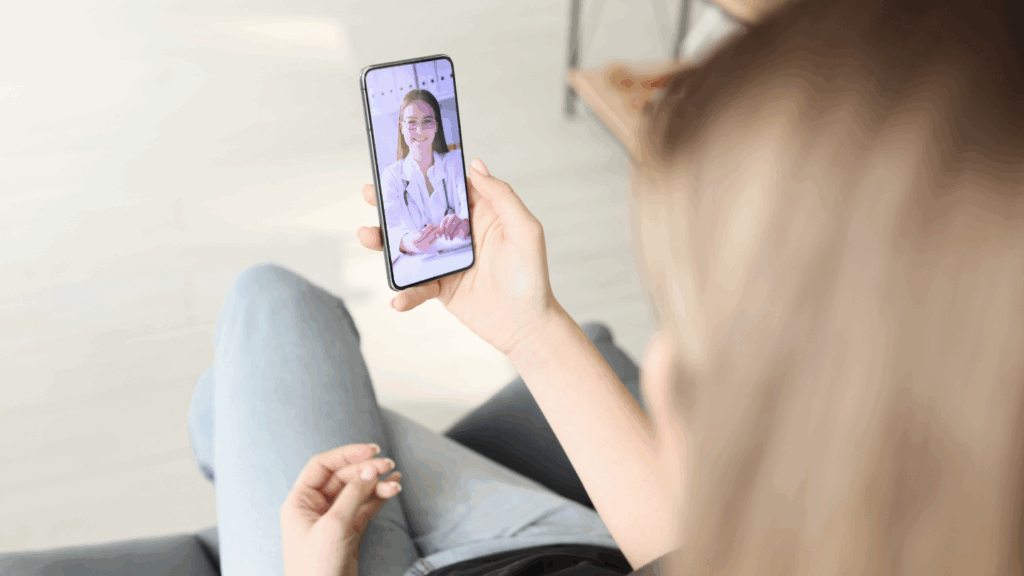Medication-Assisted Treatment in South Dakota
QuickMD currently does not offer addiction treatment online in South Dakota for substance use disorders, including treatment with Suboxone®, but we hope to soon. Join our waitlist to get notified when we launch.
Join waitlist
How to access addiction treatment in South Dakota
Right now, we don’t offer addiction treatment in South Dakota, but we hope to soon. In the meantime, we want to make sure you have the information you need to find support.
Here are a few places you can start:
- Call the South Dakota Resource Hotline: 1-800-920-4343: This free, confidential helpline connects individuals and families to local addiction treatment services, mental health support, and recovery resources throughout South Dakota.
- Use the Treatment Resource Locator from Avoid Opioid SD: Visit AvoidOpioidSD.com to find treatment providers, peer support, and community-based programs. The site includes a searchable map of services and resources across the state.
- Contact the South Dakota 211 Helpline: Dial 211 or visit helplinecenter.org for 24/7 assistance finding local treatment, recovery housing, counseling, and crisis intervention services.
- Check out the Department of Social Services Behavioral Health Services (DSS BHS): South Dakota’s DSS provides access to publicly funded substance use disorder treatment programs. Find eligibility info and a provider directory at dss.sd.gov.
- Search the national SAMHSA Treatment Locator at findtreatment.gov: Use this tool to search by ZIP code, filter by insurance type, and find providers offering the specific services you need.
- Explore peer-led support through Face It TOGETHER: With locations in Sioux Falls and virtual services statewide, wefaceittogether.org offers one-on-one peer coaching for individuals and loved ones impacted by addiction.
- Apply for or manage Medicaid coverage at DSS: If you qualify for South Dakota Medicaid, treatment services such as detox, outpatient, and residential care may be covered. Visit dss.sd.gov to learn more and apply.
If you or someone you care about is having a hard time, you can call or text 988 anytime. Trained counselors with the Suicide & Crisis Lifeline are available 24/7 to offer support for mental health or substance use challenges.
Why virtual addiction treatment matters in South Dakota
For many people in South Dakota, addiction treatment hasn’t just been hard to access, it’s felt out of reach entirely. In small towns and remote parts of the state, there might not be a single addiction specialist nearby.
Though there’s growing recognition across the state that barriers like geographic isolation and stigma play a major role in keeping people from care. Between January 2024 and January 2025, South Dakota recorded 83 overdose deaths according to recent CDC data.
Beyond the statistics, the personal stories speak volumes. People living with addiction face more than just the physical and emotional challenges of recovery. They often carry the fear of being judged by their own communities. The stigma surrounding substance use can leave people feeling ashamed, alone, and unsure where to turn for help.
By providing confidential, accessible care through telemedicine, individuals can receive support without the barriers of distance, time, or societal judgment. It ensures that help is available when and where it’s needed, offering a path to recovery that respects the dignity and privacy of every person.
Get notified when QuickMD is in South Dakota
Join waitlistServices we do offer in South Dakota
At QuickMD, we’re committed to bringing convenient, affordable, and compassionate virtual care to patients across South Dakota. We proudly offer:
- Medical Weight Loss
- Urgent Care Services
- Virtual Counseling Sessions

Medical Weight Loss
Our online weight loss treatment helps you explore options like Ozempic® and Mounjaro® with licensed providers, offering support tailored to your health goals.

Urgent Care Services
Get quick, compassionate care for common illnesses online, 7 days a week. Anytime, anywhere.

Virtual Counseling Sessions
Talk to licensed providers to support your mental well-being on your terms, when and where you need it.

Medical Weight Loss
Our online weight loss treatment helps you explore options like Ozempic® and Mounjaro® with licensed providers, offering support tailored to your health goals.

Urgent Care Services
Get quick, compassionate care for common illnesses online, 7 days a week. Anytime, anywhere.

Virtual Counseling Sessions
Get quick, compassionate care for common illnesses online, 7 days a week. Anytime, anywhere.
Frequently asked questions about MAT in South Dakota
What is the South Dakota State Indigent Medication Program?
The South Dakota State Indigent Medication Program is a temporary assistance initiative managed by the South Dakota Department of Social Services’ Division of Behavioral Health. It provides financial support for individuals who cannot afford medications prescribed for mental health conditions and substance use disorders. The program also covers related laboratory work necessary for treatment.
What is considered an opioid use disorder?
Opioid Use Disorder (OUD) is a medical condition where someone struggles to stop using opioids, even when it causes problems in their life. It might look like taking more than prescribed, having strong cravings, spending a lot of time getting or using opioids, or continuing to use despite issues at work, in relationships, or with health.
Doctors diagnose OUD based on specific symptoms that occur over at least a year. The more symptoms someone has, the more severe the disorder may be. OUD is a chronic illness, but it can be treated, often with a combination of medication, counseling, and support. Many people recover and go on to lead healthy, stable lives.
Can addiction be treated successfully?
Yes, addiction is a treatable disorder. Research has shown that combining Medication-Assisted Treatment with counseling and behavioral therapies provides a “whole-patient” approach to the treatment of substance use disorders, including opioid use disorder. Medications such as buprenorphine, methadone, and naltrexone can help normalize brain chemistry, block the euphoric effects of opioids, relieve physiological cravings, and restore normal body functions. These medications are safe for long-term use and are most effective when combined with counseling and other support services.